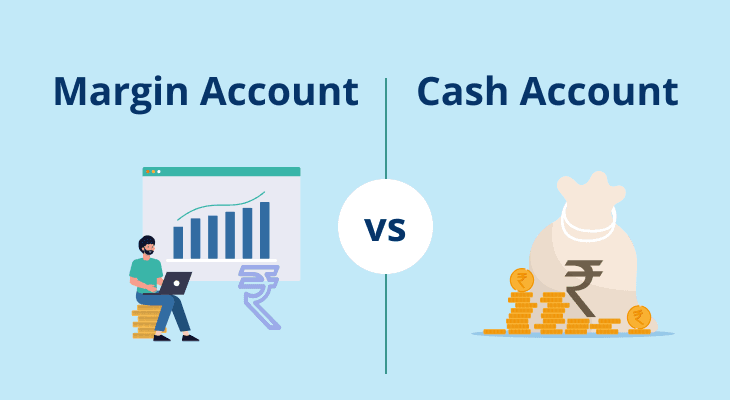
Table of content
- What is dematerialisation?
- What is rematerialisation?
- Importance of Dematerialisation and Rematerialisation in Various Industries
- Difference between dematerialisation and rematerialisation
- Challenges faced between Dematerialisation Vs Rematerialisation
- Things to consider for Dematerialisation and Rematerialisation
Difference between Dematerialisation and Rematerialisation
Recently, the Securities and Exchange Board of India (SEBI) has mandated that all securities be issued in a dematerialised form. It has also made it mandatory for traders to possess their securities in a demat form if they wish to sell them through the stock exchanges. However, as of now, traders are also allowed to convert their dematerialised securities back to their physical form through the process of rematerialisation.
If you’re a trader getting into the intricate world of the securities market, then it is important for you to know what dematerialisation and rematerialisation of shares entail, and how different they are from one another.
What is dematerialisation?
The process of converting securities such as shares and debentures held in the physical form to the electronic format is known as dematerialisation. Upon converting securities into the digital form, they can be stored in a demat account for safekeeping. Also, only by dematerialising physical shares and securities can investors sell them through the stock exchanges.
What is rematerialisation?
The process of converting dematerialised securities such as shares and debentures back into their physical form is known as rematerialisation. Investors who have their securities in the demat form can choose to convert them to their physical form by submitting a Rematerialisation Request Form (RRF) with their Depository Participant (DP).
Importance of Dematerialisation and Rematerialisation in Various Industries
Dematerialisation and rematerialisation play pivotal roles in transforming various industries, enhancing efficiency, security, and transparency.
Banking And Financial Services
In this sector, dematerialisation facilitates the secure storage and transfer of financial assets. It streamlines transactions, making them faster and more reliable, and enhances customer convenience by providing easy access to electronic records.
Stock Market And Trading
Dematerialisation is crucial for efficient trading. It enables quicker settlement of trades, improving market liquidity and reducing the risk of fraud and errors associated with physical certificates. Electronic trading also makes the process more accessible and transparent.
Insurance
Insurance companies benefit from dematerialisation by digitizing policy documents. This not only reduces paperwork but also facilitates quicker claims processing, improving customer service and operational efficiency.
Real Estate
In the real estate sector, dematerialisation simplifies property transactions. It reduces the risk of fraud by maintaining secure and accurate electronic records of ownership. This enhanced transparency builds trust among buyers, sellers, and investors.
Dematerialisation and rematerialisation significantly impact banking, financial services, stock market and trading, insurance, and real estate by enhancing efficiency, security, and convenience. These processes support the modernisation of these industries and provide flexibility to meet diverse investor preferences.
Despite the many advantages of dematerialisation, rematerialisation offers flexibility for investors who prefer holding physical certificates. This is particularly important for those who may not fully trust digital records or who have specific needs for physical documentation.
Difference between dematerialisation and rematerialisation
Now that you’re aware of what dematerialisation and rematerialisation of shares denote, let’s take a look at some of the key differences between the two.
| Category of Comparison | Dematerialisation | Rematerialisation |
|---|---|---|
Definition | It is the process of conversion of securities existing in the physical form to an electronic form. | It is the process of conversion of securities in the electronic form back to a physical form. |
Process Duration | The process of dematerialisation is quick and easy. | The process of rematerialisation takes quite a bit of time. |
Share Identification | Shares that are dematerialised don’t have any distinct numbers. | Shares that have been rematerialised will have distinct numbers. |
Account Maintenance | The depository participant is responsible for maintaining your account. | The company that issues the shares is responsible for maintaining your account. |
Maintenance Charges | You’re required to pay annual maintenance charges for holding dematerialised securities in your demat account. | You don’t have to pay any maintenance charges for holding rematerialised securities. |
Trading Flexibility | Dematerialised securities can be freely sold through the stock exchanges at any point in time. | Securities sent for Rematerialisation cannot be sold/bought through the stock exchanges. |
Security Risks | There’s no threat of fraud, theft, misplacement, or loss of shares that have been dematerialised. | There’s always the risk of fraud, theft, misplacement, or loss with rematerialised securities. |
Challenges faced between Dematerialisation Vs Rematerialisation
Despite the numerous benefits of dematerialisation and rematerialisation, these processes come with their own set of challenges. Dematerialisation, while streamlining transactions and enhancing security, may face resistance from individuals accustomed to physical certificates. Conversely, rematerialisation, which provides the flexibility of physical ownership, can be time-consuming and prone to security risks. Understanding the below-mentioned challenges is crucial for making informed decisions in managing securities.
Technological Barriers
Adopting dematerialisation requires robust technological infrastructure and investor awareness, which can be challenging, especially in less developed regions.
Regulatory Hurdles
Ensuring compliance with regulatory standards for both processes can be complex and may require significant administrative efforts.
Investor Resistance
Some investors may be resistant to change, preferring physical certificates over electronic records due to mistrust in digital systems or lack of familiarity with technology.
Cost Implications
While dematerialisation reduces long-term costs, the initial setup and transition from physical to electronic systems can be expensive. Rematerialisation, on the other hand, incurs costs related to printing and handling physical certificates.
Operational Risks
Both processes involve operational risks, such as errors in data entry, system failures, or cyber threats, which need to be managed effectively.
Things to consider for Dematerialisation and Rematerialisation
Choose The Right Depository Participant (DP)
Ensure that the DP is reliable, has a good track record, and offers efficient services for both dematerialisation and rematerialisation.
Understand The Costs
Be aware of all associated costs, including transaction fees, maintenance charges, and any additional costs for rematerialisation.
Compliance And Documentation
Ensure all necessary documentation is in order and that you comply with regulatory requirements during both processes.
Technology And Security
For dematerialisation, make sure the technological infrastructure is secure and capable of handling transactions efficiently. For rematerialisation, ensure that physical certificates are stored securely.
Stay Informed
Keep yourself updated about the procedures, timelines, and any changes in regulations related to dematerialisation and rematerialisation.
Monitor Transactions
Regularly check your demat account statements to ensure all transactions are accurately recorded and there are no discrepancies.
Flexibility
Consider your investment needs and preferences. While dematerialisation is highly efficient and recommended for most investors, rematerialisation may be suitable for those who prefer physical evidence of ownership.
Conclusion
This should give you more clarity about the concepts of dematerialisation and rematerialisation. Holding your shares in the dematerialised form is more beneficial than having them in the physical form since you can sell demat securities on stock exchanges whenever you want.
Also, with dematerialised shares, you don’t have to worry about losing your securities or being a victim of fraud. So, if you possess any securities in the physical form, it may be a good idea to get them converted into the demat form right away.
FAQ
Where are dematerialised securities stored?
Dematerialised securities are stored in a demat account, which is basically an electronic account that you hold with a depository.
Can I continue to hold securities in the physical form without having them converted?
Yes. As of now, you can continue to hold securities in the physical form.
What is the general procedure for converting shares from the physical form to the electronic form?
To convert your physical shares into the electronic form, you would have to first open a demat account with a Depository Participant (DP). Once you’ve done that, the next step is to fill and send a Dematerialisation Request Form (DRF) along with the shares to the DP. That’s it. Your shares will be dematerialised and credited to your demat account within just a few days.
Why would investors want to convert their securities from the electronic form to the physical form?
Investors generally choose to rematerialise their securities for one primary reason - to save on demat account maintenance charges. Also, if they hold very few securities, they might choose to have them in the physical form.
Which is faster - dematerialisation or rematerialisation?
The process of dematerialisation is usually faster than the process of rematerialisation.
Are there any security concerns with holding shares in the demat form?
No. As long as you don’t share your demat login credentials with anybody, the securities that you hold in them would be completely safe and sound.
Are there any recurring costs associated with the rematerialisation of shares?
Your Depository Participant (DP) may choose to levy a one-time fee for rematerialisation. However, apart from that, you don’t have to pay any other charges like account maintenance charges periodically.


